Three scenarios to 2045
At the Policy Dialogue on High and Sustainable Economic Growth to 2045, organized by the National Economics University on the morning of June 3, experts said that without a breakthrough acceleration phase, Vietnam is at risk of falling into the “middle-income trap”, when growth is not strong enough to surpass the threshold of a developed economy.
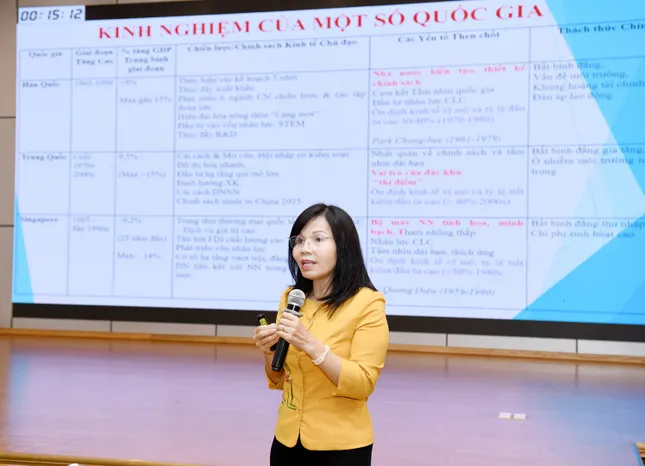 |
Professor Tran Thi Van Hoa proposed three growth scenarios. |
Prof. Dr. Tran Thi Van Hoa - National Economics University cited data from the World Bank (WB) - said that the current high-income threshold is 14,006 USD. Assuming an average global inflation of 3% per year, this threshold could increase to 26,835 USD by 2045. Meanwhile, with a population growth rate of 0.7% per year, Vietnam needs to achieve an average GDP growth rate of 9.5% per year to qualify for the high-income group.
Ms. Hoa proposed 3 growth scenarios. Scenarios A and B set growth targets at a moderate level, which are easier to achieve but have limited potential for breakthroughs. Accordingly, GDP per capita by 2045 will only reach about 18,000 - 25,000 USD, not yet surpassing the threshold to become a developed country.
In contrast, scenario C is more ambitious, aiming for GDP growth of 11-12% per year in the 2025-2035 period, thereby raising per capita income to 28,370 USD by 2045.
Ms. Hoa believes that this is a feasible option if Vietnam resolutely reforms its institutions, invests heavily in strategic infrastructure, upgrades human resources and proactively applies high technology, similar to the successful development model of some East Asian countries.
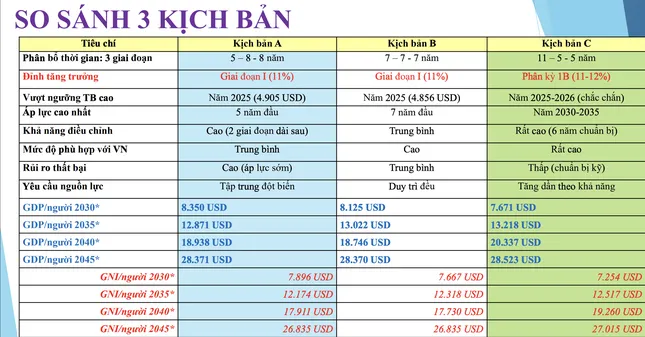 |
Experts recommend scenario C, with extended preparation time for comprehensive reform |
The roadmap under scenario C is divided into three phases. The first phase (2025-2035) plays a foundational and accelerating role, focusing on institutional reform, infrastructure development and attracting high-quality foreign investment flows. The next phase (2036-2040) aims to consolidate and transform the growth model based on digital technology , automation and knowledge-based service industries. The final phase (2041-2045) focuses on perfecting market institutions, promoting innovation, enhancing sustainable development and promoting international integration.
Proposal to establish a "rapid response team"
Dr. Vu Sy Cuong - Academy of Finance - emphasized that finance and budget are prerequisites to achieve these goals. Mr. Cuong said that state budget management is a key factor, affecting the ability to implement policies and development plans.
“If we set a lot of goals and plans, but the cash flow cannot keep up, and there are no accompanying financial resources, it will be very difficult to implement any strategy. Amendments to laws related to finance and budget are being proposed but are rarely discussed, while in the recent National Assembly session, this discussion should have been prioritized, along with discussions on the local government apparatus.
Otherwise, after the apparatus is set up, it will take several more months to return to building the budget content - a worrying delay, because during that time all activities are almost stagnant," Mr. Cuong worried.
Associate Professor Dr. Pham The Anh emphasized that the foundation for high economic growth is macroeconomic stability. However, Vietnam's monetary policy still lacks independence. The State Bank is directly under the Government and is under direct management, different from the independent central bank model common in many developed countries.
Mr. The Anh proposed that the National Assembly should be the agency that assigns macro-economic management targets, while the State Bank should have full authority to choose the tools and methods of implementation without interference from the Government. Strengthening independence and transparency will enhance policy credibility, build trust and encourage long-term investment.
In addition, the expert also warned about the significant gap between policy and implementation. Although the policy and high-level resolutions are considered correct, the actual implementation process is slow and ineffective.
To overcome this situation, Mr. The Anh proposed establishing "rapid response teams" to promptly receive and handle problems from businesses and people, thereby helping policies not only remain on paper, but actually enter life.
Source: https://tienphong.vn/kich-ban-thu-nhap-binh-quan-nguoi-viet-dat-28370-usdnam-post1747959.tpo








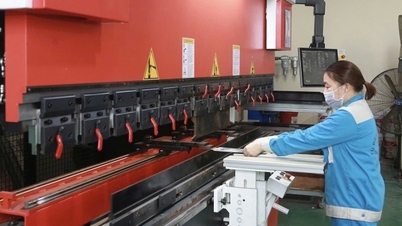

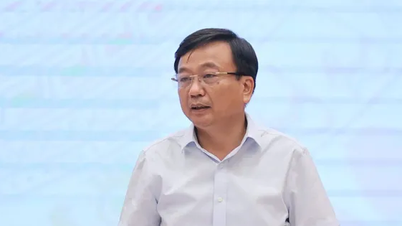
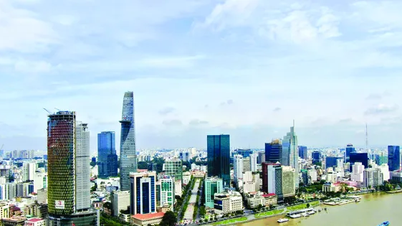

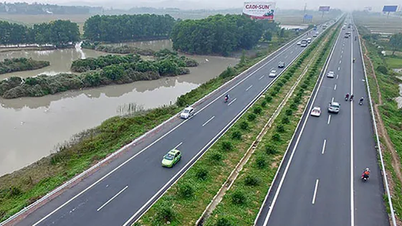
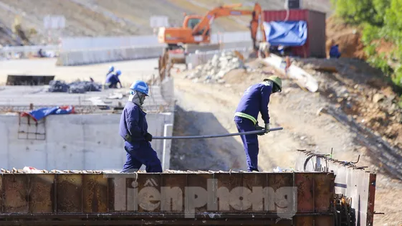













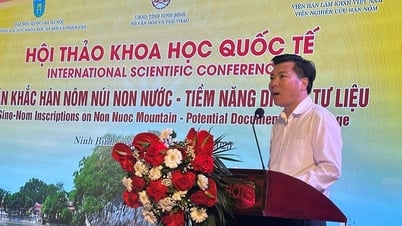


































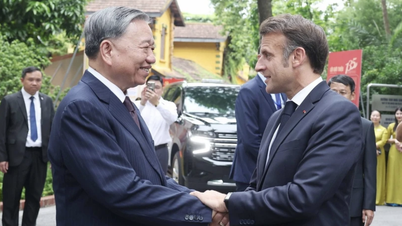



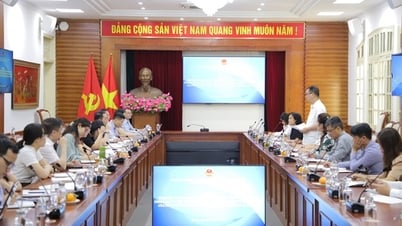


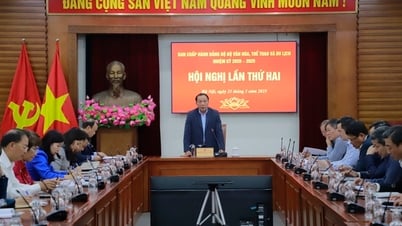


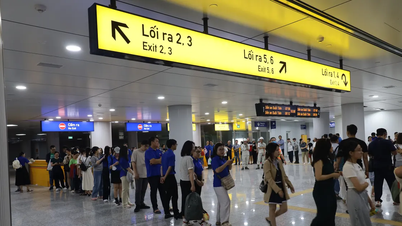







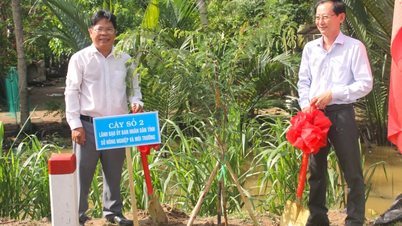










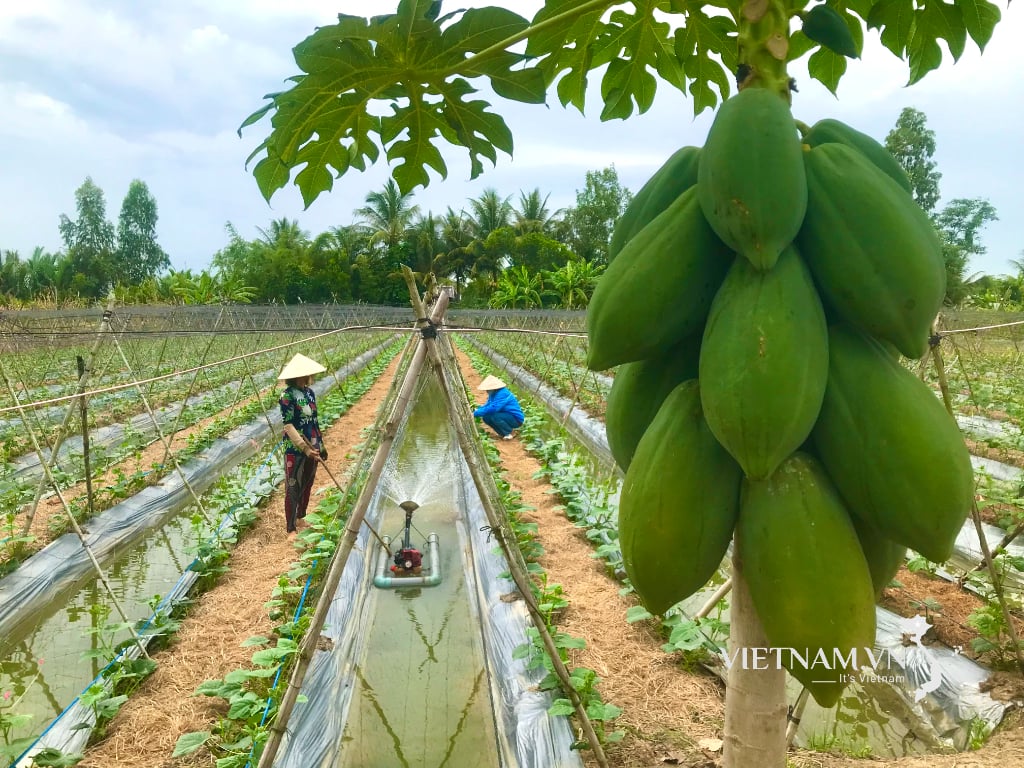

Comment (0)